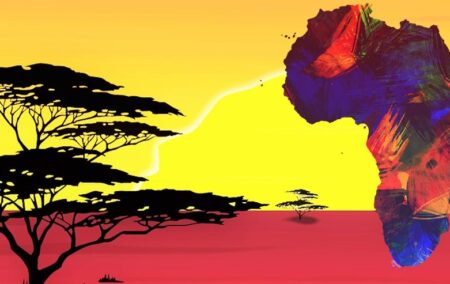‘It’s my home, it’s where I live, it’s where I belong; I didn’t choose to be here, I was born. I might seem out of place here, but everything I hold dear is under the African sun!’
So went the 2005 song by Hog Hoggidy Hog – but is it as simple as that?
It seems that a nasty sub-current of race nationalism is rising in South Africa, implicitly suggesting that only people of certain races (and certainly not whites or Indians) can be South African.
This raises a number of questions. Can whites and Indians be South Africans (and indeed Africans), or are we a country where our race determines our nationality? And is there a future for minorities?
A few years ago, in my first stint at the Institute of Race Relations, there was some discussion about the question of labelling race groups in our legendary Survey and our other research, where it was necessary to break down findings by race. I recall there being a proposal that, instead of using the four conventional categories of black (African), coloured, Indian, and white, we should use ‘black African’, ‘coloured African’, ‘Indian African’, and ‘white African’.
This small change would have confirmed something that is surely self-evident – that being born on this continent or being a citizen of one of Africa’s 55 countries does make one an African.
But, increasingly, this does not seem obvious.
Consider the recent vile rants by Zindzi Mandela on Twitter against white South Africans and our place in this country, or Ntsiki Mazwai, the well-known television personality who glibly calls whites ‘settlers’. These are but two examples. A quick trawl through social media will find many people agreeing with such sentiments. Are these keyboard warriors an isolated minority, or do they reflect common thinking?
At the same time, it is true that Europeans and their descendants did much damage to this country, and the people who lived here. Much of the anger aimed at colonialism and apartheid and their architects is justified. And for every foul epithet aimed at a ‘settler’, the k-word or some other vulgar pejorative is aimed at a black person on social media. White South Africans have much introspection to do; there is some truth in the claim that reconciliation has often been something of a one-way street.
This one cannot argue with. But it is neither useful nor positive for ‘social cohesion’ (to use a term favoured by our country’s politicians) to describe white people as interlopers or lay the blame for crimes committed by the ancestors of white South Africans at the door of white people who live here today.
The fact of the matter is that every white South African younger than 48 is too young every to have voted in a whites-only election. And every white South African younger than around 45 is too young ever to have been conscripted into the apartheid-era defence force.
Doubtless, there are younger white South Africans who harbour anti-black racism, but if it is not dead it is certainly dying out. Racism is rejected in most social circles, and there are now real social and other consequences for being a racist – ask Vicki Momberg or Adam Catzavelos.
I think it is fair to say that the words of the late great Hog Hoggidy Hog, featured at the top of this article, capture the feeling of most white South Africans.
While the ‘Rainbow Nation’ is increasingly derided as an idea cooked up by a bunch of old farts at Codesa who did not understand the country they were negotiating over, the idea had merit (and still does). In a country as diverse as South Africa, shared as it is by people of different races, languages, and faiths, a concept like the Rainbow Nation is essential to our survival as a society where people are accepted as citizens, whatever their skin colour or other immutable characteristics.
And, as it happens, our research has consistently shown that black and white South Africans in general get on well and want the same things, as do coloured and Indian South Africans. Given our history, this is a remarkable achievement, reflecting on one hand an acceptance of the loss of political power by whites, and, on the other, the extraordinary magnanimity of their black, coloured and Indian counterparts who suffered under apartheid.
White South Africans can make no claim to being given special treatment today – but calling all whites rapists or land thieves should be treated with the contempt it deserves. And this goes for other minorities, too – verbal attacks on Indian South Africans are becoming increasingly common. The current assaults on minister of public enterprises Pravin Gordhan is a prime example.
Successful countries are not those that demarcate citizenship by race or some other immutable characteristic. They are those that accept all on the basis of common values.
It may well be that South Africa is at a crossroads – a point at which we need to ask what kind of country do we want to be? As for whether there is a future for minorities in South Africa, I think the answer is undoubtedly yes. But we should have no doubt that that depends on the choices we make today.
Marius Roodt is head of campaigns at the Institute of Race Relations.
If you like what you have just read, become a Friend of the IRR if you aren’t already one by SMSing your name to 32823 or clicking here. Each SMS costs R1.’ Terms & Conditions Apply.

